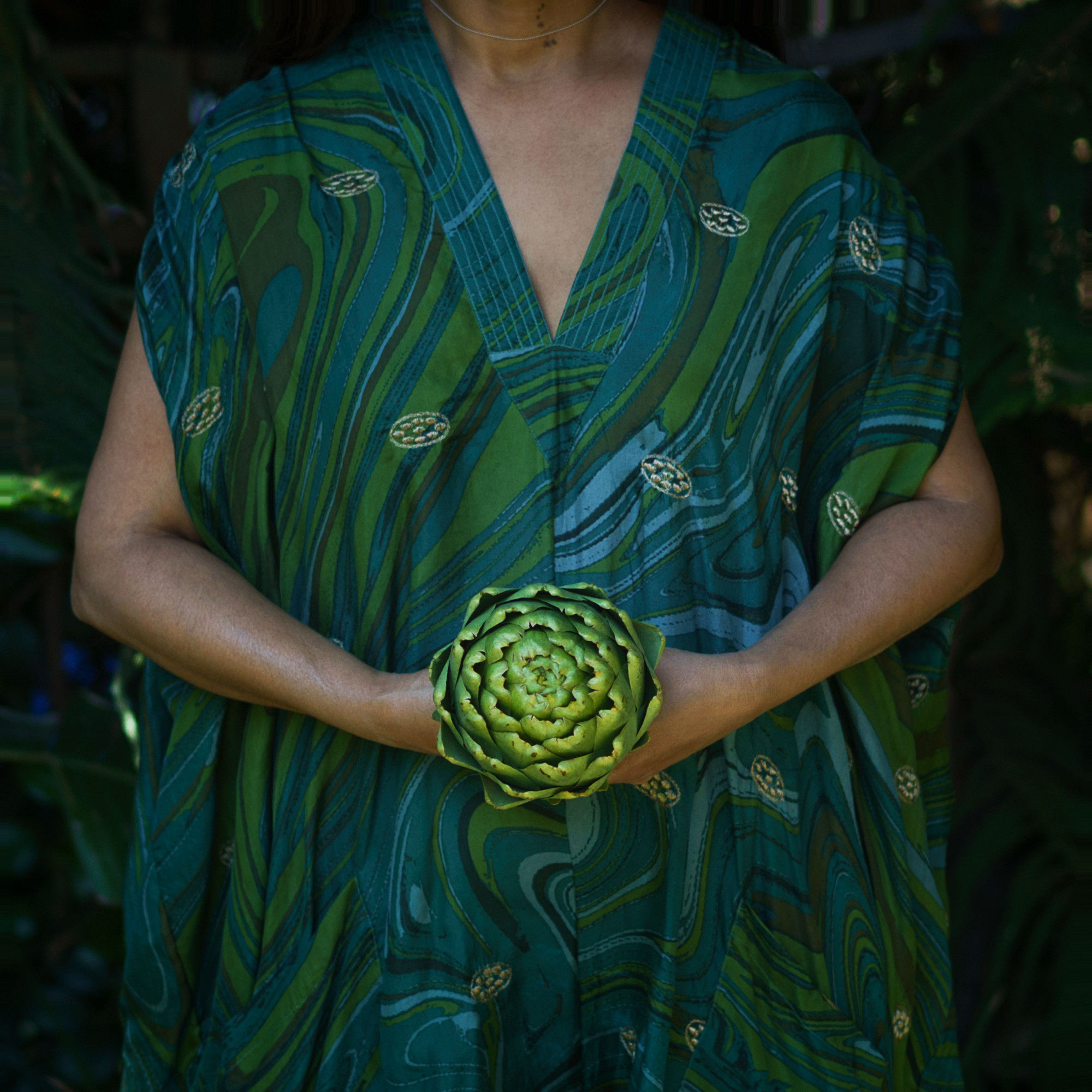A Body of Possibilities
By Allie Mariano

Artichoke for steaming with aromatics, 2020, a photo by Rohina Hoffman from her book Embrace, published in January by Schilt © The artist
As interim managing editor of this magazine, I feel a bit out of place, if not completely out of my depth, in penning (well, typing) this letter. I am supposed to keep the show on the road while our editor is on leave to work on her certain-to-be-beautiful book. I say this with no unpleasantness, but as a way to admit that I am grateful to be here, yet not sure I am in the right place. I’m peeking out from the curtains when everyone expects a beloved Nashville star, and here I am an Opry newcomer, a no-name headliner with stage fright.
Watch me shuffle on stage and try.
Last summer, the editorial team brainstormed future issue themes. Among those ideas was something loose, perhaps a meditation on the body or sex or desire. After all, the Oxford American has covered place, food, and all manners of music. Our bodies, too, are important to representing our region: how we depict them, relate to them, fight for them. While we eventually agreed to keep the issue theme-less, bodies swim through every piece of writing in these pages: the terror and beauty of being a human made of flesh, the fears and delights of the physical self. In my past life I was an English teacher, so I can’t help but find that connective thread.
“Summer reading” might bring to mind escape, frivolity. But our contributors paint the South as it is. Benjamin Hedin catches up with the Tallahassee Dream Defenders. He tells us not just how Phillip Agnew, Jonel Edwards, Nailah Summers-Polite, and many others once formed a body in protest; he also archives their lives beyond that singular moment. C. J. Bartunek guides us into the educational—and at times absurd—world of historical impersonation in her profile of Monticello’s Bill Barker, whose portrayal of Thomas Jefferson offers “a conduit for important conversations about our nation’s continuing paradoxes.” Short-story writer Giovannai Rosa maps for us a haunted Miami, where a conflicted narrator sorts through the weight of her decisions by prodding her own decaying tooth.
Some of our contributors look inward at the ways identity and gender and class can create otherness. And some find their otherness reconciled: in a family crab boil, in the quiet wilderness of central Arkansas, in the prophetic sounds of CrazySexyCool. This is all to say: These stories show people being who only they can be, whether that is Minnie Pearl or a rock & roll president.
At one point, we felt the heaviness of some of this content so strongly that we called upon our poetry editor, Rebecca Gayle Howell, to find us something bright, something sunny, and she delivered Nomi Stone’s glimpses into the glories of motherhood. In “When Gulu Got Language,” we see and hear the speaker’s young child finding the words to marvel at our wondrous world. “WOW,” he says in refrain, a simple utterance to remind us that inhabiting a body is nothing short of miraculous.
The work of our cover artist, Jody Fausett, lends another touch of lightness to this issue. The woman in the photo, posing almost classically, reminds us of the possibilities of a body. She revels in herself gloriously, not the age nor the shape we have been taught to expect in a cover model, and she is made more magnificent because of that. The title, Wet Driveway, invokes the scent of summer: water straight from the hose, rising up in a steam from pavement too hot for bare feet. The orange, the green. It’s an image I can’t look away from, and it felt just right for this collection of work, both refreshing and bold during the hottest months of the year.
In March, I committed to continuing Danielle A. Jackson’s vision for the magazine. And while the work ahead aims to do that, I have found my own fingerprints all over it, from the writing I advocated for us to spotlight—I’m thrilled to include Gabrielle Lawrence’s deeply personal OA debut—to the fine art that I had the opportunity to be more active in selecting, including Justin Kimball’s photos on our section openers, which expand on the warm imagery and bright light of the cover. The rest of the editorial team, the editors and interns alike, have also made their mark; their unique perspectives and desires trace around the words on each page. We have all had our say in how we present our people.
Here, I will take my bow—with relief. But the show goes on. Please enjoy the good writing ahead.


